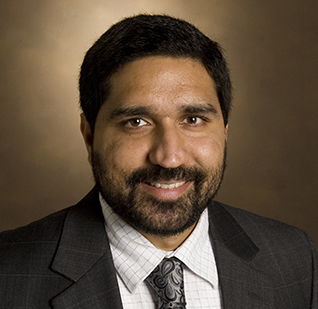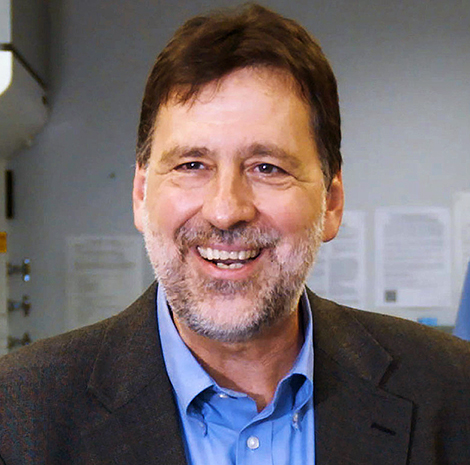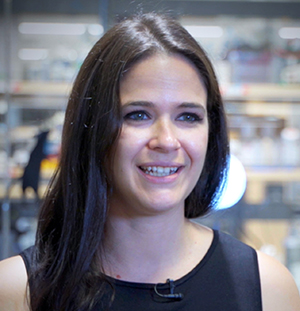Research, News & Discoveries
-

Vanderbilt-led team discovers new genetic disease and defines underlying mechanism
Jan. 13, 2020, 11:00 AM Cartilage cells in the zebrafish model of the disease CATIFA (right) have reduced volumes and irregular shapes compared to healthy cartilage cells (left) because of a defect in collagen secretion. (image courtesy of Ela Knapik, MD) by Leigh MacMillan Studies that started in zebrafish have… Read MoreJan. 17, 2020
-

Zinc uptake by a deadly pathogen
Jan. 13, 2020, 8:30 AM by Leigh MacMillan The journal cover featured an artistic representation of Acinetobacter baumannii infecting the lung, which was created by undergraduate student Ayomide Sanusia. Acinetobacter baumannii — a cause of pneumonia, sepsis, wound and burn infections — is becoming more prevalent and resistant… Read MoreJan. 17, 2020
-

Study sheds light on link between cannabis, anxiety and stress
Jan. 15, 2020, 12:08 PM by Kelsey Herbers A molecule produced by the brain that activates the same receptors as marijuana is protective against stress by reducing anxiety-causing connections between two brain regions, Vanderbilt University Medical Center researchers report. This finding, published today in Neuron, could help explain why some… Read MoreJan. 15, 2020
-

Meet the pioneering scientists transforming medicine for millions of people
Antibody science has been around since the 1790s, but it’s come a long way thanks to innovators in medicine By Deborah Abrams Kaplan for Regeneron Major advances were made in the 1970s, when scientists used technology to produce large numbers of identical (monoclonal) antibodies in mice.3 The U.S. Food… Read MoreJan. 13, 2020
-

Jeff Conn awarded ASPET 2020 Julius Axelrod Award in Pharmacology
ASPET is pleased to award Dr. P. Jeffrey Conn from the Vanderbilt Center for Neuroscience Drug Discovery the 2020 Julius Axelrod Award in Pharmacology. The Axelrod Award was established in 1991 to honor the memory of the eminent American pharmacologist who shaped the fields of neuroscience, drug metabolism, and… Read MoreJan. 13, 2020
-

Structural views of a C. diff toxin
Jan. 10, 2020, 8:30 AM by Leigh MacMillan Clostridioides difficile (C. diff) is a leading cause of hospital-acquired infection and diarrhea. C. diff infection requires the secretion of one or more bacterial toxins. Recent studies have suggested that the C. diff transferase toxin (CDT) increases the severity of infection. To… Read MoreJan. 10, 2020
-

Erin Calipari one of thirteen faculty members to receive Provost Research Studios for 2019-20
Jan. 6, 2020, 8:00 AM Vice Provost for Faculty Affairs Tracey George (Vanderbilt University) Thirteen outstanding faculty members from across the university have been awarded a Provost Research Studio for the 2019-20 academic year. The goal of the Provost Research Studios is to support the professional development of full-time faculty… Read MoreJan. 7, 2020
-

Lisa Monteggia elected member of the Dana Alliance for Brain Initiatives
New York, NY, December 19, 2019—The executive committee of the Dana Alliance for Brain Initiatives announced the names of twenty members newly elected to the organization. Research interests among new members are broad, including brain evolution, the effects of poverty on mental health, imaging genomics, and olfaction. Founded in 1993,… Read MoreJan. 3, 2020
-

Ege Kavalali receives Humboldt Research Award by the Alexander von Humboldt Foundation of Germany
Ege T. Kavalali, PhD, professor and acting chair of the Department of Pharmacology in the Vanderbilt University School of Medicine, has been elected a recipient of a prestigious Humboldt Research Award by the Alexander von Humboldt Foundation of Germany. Kavalali, also William Stokes Professor of Experimental Therapeutics at… Read MoreJan. 3, 2020
-

Reversing stress-related anxiety
Dec. 20, 2019, 11:00 AM by Allison Whitten Prolonged stress can lead to a myriad of mental and physical health issues. Up to one quarter of people suffering from chronic stress also exhibit comorbid anxiety, depression, and substance use disorders. In a new study published in the… Read MoreDec. 20, 2019